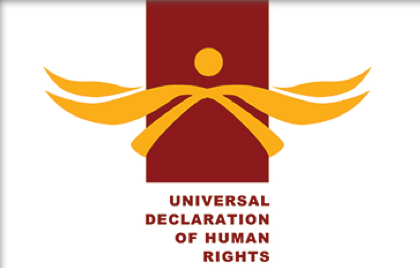Kashif Shah
- 137 Posts
- 192 Comments

 2·4 months ago
2·4 months agoSummary provided by https://notegpt.io/pdf-summary
Summary The International Court of Justice has found that Israel’s policies and practices in the Occupied Palestinian Territory, including East Jerusalem, violate international law. The Court determined that Israel’s actions, such as its settlement policy, acts of annexation, and discriminatory legislation and measures, constitute a breach of international law, including the prohibition on the use of force and the non-acquisition of territory by force. Israel’s presence in the territory is deemed unlawful, and the Court has called for an end to settlement activities, evacuation of settlers, reparations for damages caused, and non-recognition of the illegal situation by states and international organizations.
Key Insights The International Court of Justice has determined that Israel’s presence in the Occupied Palestinian Territory, including East Jerusalem, violates international law. Israel’s settlement policy, acts of annexation, discriminatory legislation, and measures were found to be in breach of international law. The Court has called for an end to settlement activities, evacuation of settlers, reparations for damages, and non-recognition of the illegal situation. The General Assembly and Security Council of the United Nations are tasked with considering further action to end Israel’s presence in the territory. The Court emphasizes the importance of achieving a just and lasting peace in the region for the benefit of all parties involved. Frequently Asked Questions Question
What actions were deemed unlawful by the International Court of Justice in the Occupied Palestinian Territory? Answer The Court found Israel’s settlement policy, acts of annexation, discriminatory legislation, and measures to be in violation of international law.
Question
What measures did the Court call for to address Israel’s presence in the territory? Answer The Court called for an end to settlement activities, evacuation of settlers, reparations for damages caused, and non-recognition of the illegal situation.
Question
Which international organizations are obligated not to recognize the illegal situation in the Occupied Palestinian Territory? Answer All states and international organizations are obligated not to recognize the illegal situation in the territory.
Question
What role do the General Assembly and Security Council of the United Nations play in addressing Israel’s presence in the territory? Answer The General Assembly and Security Council are tasked with considering further action to end Israel’s presence in the Occupied Palestinian Territory.

 1·4 months ago
1·4 months agoAgreed. Let me see what I can do.
 1·4 months ago
1·4 months agoThey’re just categorically different, there isn’t an “inside” or an “outside” in the sense of spatial structure as that is something derived a posteriori as part of thought.
So… there are things that are either within the category of thought or not? Is thought mutually exclusive to material? Is thought composed of material or the other way around? Or are they both the same?
I’m not sure what it would even mean to say reality is “thought”.
That is the standard definition of idealism, is it not? That existence is immaterial?
 2·4 months ago
2·4 months agoBut what justification is there that what is thought of is actually in existence outside of thought? One can think of things that do not exist outside of thought.
What justification is there that reality isn’t thought by it’s very nature?
 1·4 months ago
1·4 months agoHow do you justify the premise that reality is objectively-existent?

 2·4 months ago
2·4 months agoLanguage like that plus the failure to treat the subject of discussion to dignity was almost enough for me to remove this comment, on it’s own. Thankfully, the community has spoken using the tools available to them to indicate that your behavior is unacceptable. Keep it up and you’ll be removed.

 2·5 months ago
2·5 months agoThanks for taking the time to reply, db0! That is much appreciated.

 4·5 months ago
4·5 months agoalso, apologies to everyone at lemmy.sdf.org if i am flooding local for you. i’ve been busy adding a bunch links

 2·5 months ago
2·5 months agothey also have an email address: membership at sdf dot org, but yeah, the internal BBS is where it is at.
We are a public access UNIX system, so it’s not as much of a void as it might seem :D
 2·5 months ago
2·5 months agoWell, please do share what you find!
You are on the right track w/ idealism vs materialism in psychology, at least.
The question there arose from the brain: how do you rectify the mind/soul with the brain/body? Dualism apparently fails (the idea that there is a separate mind from the brain) which leaves only some form of monism. A sort of hybrid materialism-idealism seems to make the most sense, where consciousness is a property of the universe, like time or space, and different entities have differing consciousnesses. In that sort of a philosophy, when talking about the brain of a person you are equally talking about the experience that person is having, just in different terms.
I suspect that in sociology that would be some sort of unified anarcho-marxism, if such a thing exists. The atomic theory of society seems to be the thing where they are working on unifying language. If society is fully atomized, asking whether a new society arises due to free choice or resource demands is like asking whether rivers rise due to rain or sewer overflow, if that makes sense?

 2·5 months ago
2·5 months agothis was one of my favorite childhood games, thanks for posting this!
 2·5 months ago
2·5 months agoapparently, depending on the language used, it will drive the easily angered on the right to insanity
 2·5 months ago
2·5 months agoYou are very welcome!
I’m glad to be able to be of appreciation, as I know how that is - looks like you are in the right place to discuss political science though!
In the interest of conversation, maybe you can explain or point me to an explanation of why Anarchism vs. Marxism is considered “idealism vs materialism” in sociology?
In Psychology, we had an “idealism vs materialism” debate, but it is mostly resolved with a sort of “idealistic materialism” or “materialistic idealism” where, essentially, “idealism <=> materialism”, as I understand it.
I’m curious about what the current state of the art is, in that debate!
Either way, I’ll definitely spend some time in !politics@lemmy.ml checking things out.
 1·5 months ago
1·5 months agoHave you read about the International Covenant on Economic, Social, and Cultural Rights yet?
Based on my understanding, that treaty will require us to have universal healthcare and social security.
https://en.wikipedia.org/wiki/International_Covenant_on_Economic,_Social_and_Cultural_Rights
 1·5 months ago
1·5 months agoI think “Outsider Left” may have subsumed “Faith and Family Left” in the new version of the typology.
 2·5 months ago
2·5 months agoA good rule of thumb is to measure twice, cut once, so perhaps give it a try twice: once where you answer philosophically and once where you answer practically?
I’m due for taking it again, myself, but I generally consider myself a radical moderate (I’m all for system-wide changes) and I think Pew described me as “faith and family left” when I last took the test.
 2·5 months ago
2·5 months agoHah, hello neighbor :D
I’m curious how universal these political typologies could be made. I’m sure this one might apply a great deal to a number of western countries, if you change the names accordingly, etc.

 2·5 months ago
2·5 months agohttps://en.wikipedia.org/wiki/Long-range_Wi-Fi
:D
I’ll see if i can find something specifically about what you are asking, but I would be surprised if anyone has taken the time to try to bounce WiFi. The wavelength might not be amenable to bouncing, as it is such a high frequency signal. If I recall correctly, there is a relatively narrow range of wavelength that will actually bounce back to earth off of the atmosphere.
edit: https://radiojove.gsfc.nasa.gov/education/activities/iono.html



















For further disambiguation: https://www.amnesty.org/en/latest/campaigns/2022/02/israels-system-of-apartheid/